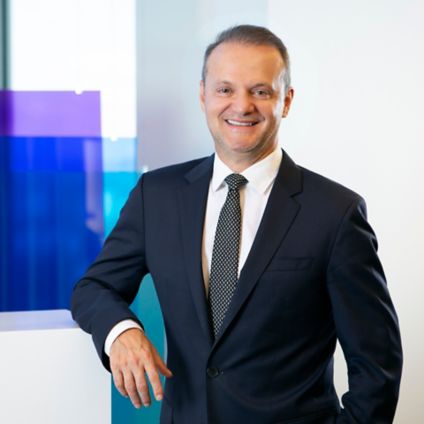According to KPMG’s 2024 "Global CEO Outlook" research, despite public concerns about the risk of layoffs, CEOs believe in the transformative potential of artificial intelligence and are confident it will not have a harmful impact on the workforce. More than three-quarters of CEOs (76%) predict that artificial intelligence will not reduce the number of employees in their organizations over the next three years.
Another key finding this year is CEOs' attitudes toward returning to pre-pandemic work styles. As CEOs get older, their attitudes toward returning to the office become more rigid. Among those who want a return to the office, 75% of CEOs aged 40-49, 83% of those aged 50-59, and 87% of those aged 60-69 favor a return. Interestingly, a gender divide also appears in these results. While 84% of male CEOs foresee a full return to the office within three years, only 78% of female CEOs share this expectation.
The results of KPMG's 2024 "Global CEO Outlook" have been released, based on a survey of over 1,300 CEOs from the world's largest companies regarding their strategies and expectations. According to the research, CEOs' confidence in the global economy has decreased over the past decade. In 2015, when the study was first conducted, 93% of CEOs expressed confidence, but this figure has now dropped to 72%. The growing pressures from increasing threats to business growth are intensifying for CEOs.
This year's survey shows that CEOs are most concerned about the impact of supply chain disruptions and operational issues on their businesses' growth over the next three years, even more so than cybersecurity or the geopolitical and political uncertainties that were the number one threat last year. Looking more closely at the next three years, participants identified their key operational priorities as: advancing digitalization and connectivity across their businesses (18%), understanding and implementing productive AI across the business and developing the workforce accordingly (13%), and driving ESG initiatives (13%).
Over the past decade, our world has experienced a range of fluctuations, from the economic and social shockwaves of the COVID-19 pandemic to the resurgence of inflation and geopolitical tensions. In response, CEOs, who have had to shoulder increased pressure, were also forced to adapt to these challenges that have led to a decline in confidence in the global economy. By staying resilient, leaders continue to drive their businesses toward sustainable growth. Global leaders are building a solid foundation by making significant investments in artificial intelligence and strengthening their workforce to adapt to changing business needs. The results from our survey show that, looking ahead to the next decade, CEOs who develop bold strategies to adapt to our rapidly changing world and invest in the right technologies and capabilities to turn their plans into reality will be able to achieve sustainable, long-term growth.

More than half of CEOs plan to invest in artificial intelligence
In 2024, the majority of global CEOs (64%) state that they will invest in artificial intelligence regardless of economic conditions. While current examples of AI usage are making significant waves in the public eye, global CEOs are aware of the need to overcome future challenges, considering AI's potential to transform every aspect of our daily lives. CEOs see AI's potential in increasing efficiency and productivity (16%), preparing the workforce for the future (14%), and enhancing corporate innovation (13%). More than half of CEOs (61%) identified ethical challenges as one of the most difficult issues to address when implementing AI in their businesses. In 2023, this figure was 57%.
According to CEOs, employees are not fully leveraging the potential of artificial intelligence
Despite public concerns about the risk of layoffs, CEOs believe in the transformative potential of artificial intelligence and are confident that it will not have a harmful effect on the workforce. More than three-quarters of CEOs (76%) predict that artificial intelligence will not significantly reduce the number of jobs in their organizations over the next three years. However, CEOs are also aware that their employees will need to adapt in order to fully capitalize on this opportunity. When asked about their organizations' current AI readiness, only 38% of CEOs are confident that their employees possess the right skills to fully benefit from AI. Along with these assessments, 58% of CEOs acknowledge that the integration of productive AI has led them to reconsider the skills required for entry-level roles.
Older CEOs and male CEOs have a more rigid attitude toward remote work
According to this year's results, CEOs' attitudes toward returning to pre-pandemic work styles are increasing. 83% of participants plan to fully return to the office within the next three years, compared to 64% in 2023. One interesting finding from the survey is that the expectation for a return to the office increases with the age of the CEO. Older CEOs are more likely to want their employees to return to the office. This figure is 75% for CEOs aged 40-49, 83% for those aged 50-59, and 87% for those aged 60-69. Interestingly, a gender divide also emerges in these results: 84% of male CEOs expect a full return to the office within three years, while only 78% of female CEOs share this expectation.
Environmental risks now occupy a more prominent place on CEOs' agendas compared to 10 years ago
About 10 years ago, CEOs ranked environmental risk as the least concerning priority risk. By 2024, however, nearly a quarter (24%) acknowledge that failing to meet expectations in ESG (Environmental, Social, and Governance) issues will likely provide a competitive advantage to their rivals, which would pose a greater threat to their tenure (21%) and hiring challenges (16%). More importantly, the majority of CEOs (68%) state that, even if their boards express concerns about them, they would take a stance on politically or socially controversial issues. Interestingly, generational differences also emerge among CEOs on this matter. Among younger leaders (aged 40-49), 43% say they feel confident if an investigation into ESG matters is initiated, compared to 33% of CEOs aged 50-59 and 30% of those aged 60-69.
Connect with us
Connect with us
- Find office locations kpmg.findOfficeLocations
- kpmg.emailUs
- Social media @ KPMG kpmg.socialMedia
